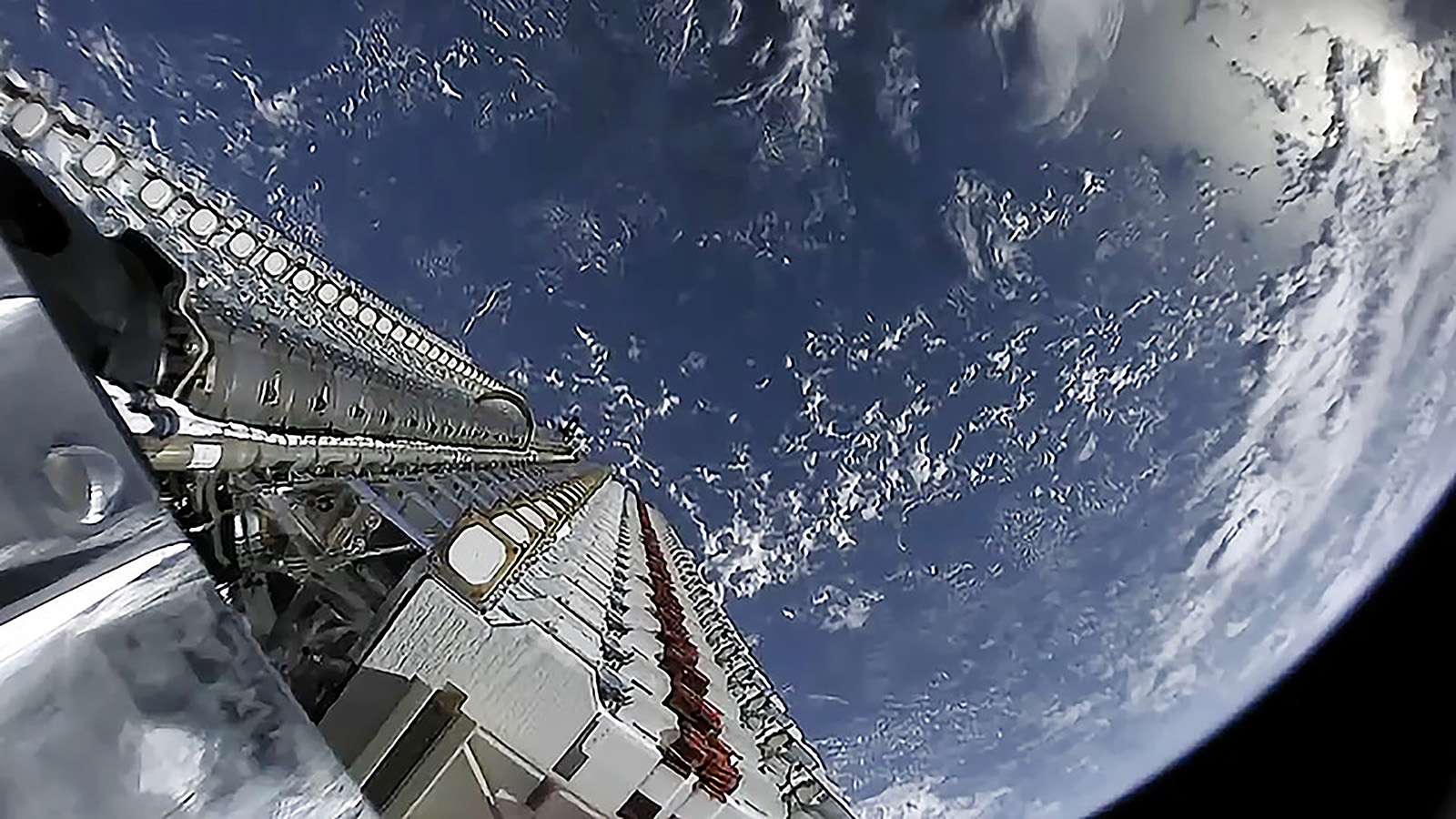Stay Up to Date
Submit your email address to receive the latest industry and Aerospace America news.
Can the “Golden Rule” apply to space debris and satellite collision avoidance?
Editor’s note: We have updated Ryan Shepperd’s quote about nondisclosure agreements based on our recording of his comments. The changes do not affect the meaning of the quote.
AIAA ASCEND, Las Vegas — Satellite operators who spoke here Monday about space traffic management said they believe the time has come for new rules of the road in Earth orbit, including open sharing of information about where satellites are located to promote collision avoidance.
Executives from Iridium, an early pioneer of large satcom constellations, and SpaceX, which operates the Starlink constellation, expressed concerns about the pending handover of the United States’ space traffic management in the next few years from the Department of Defense to the Department of Commerce. But they also said they are committed to making the transition successful.
Iridium in the past would have been reluctant to share any information about its satellites without a signed nondisclosure agreement, Ryan Shepperd, space situational awareness lead for Iridium, said during the panel discussion.
“These days, I’ll allow that same conversation with anybody without an NDA because we recognize now that there are some aspects of our business that shouldn’t be proprietary,” Shepperd said, “that in the interest of saving sacred space, these things have to be said, and one of them is, ‘What are your intentions for proving where you are located at in orbit?’”
Iridium, SpaceX and satcom provider OneWeb collaborated on a document published in September titled “Satellite Orbital Safety Best Practices,” which provided a basis for the panel discussion.
Disclosing detailed information about satellite location will also help companies design new constellations that never interfere with one another from their inception, Shepperd said.
Position information should be required for all satellite operators, said David Goldstein, principal guidance navigation and control engineer at SpaceX.
“I’m not speaking for SpaceX here but, personally, I think you should be required to do it, to get a license, in an accurate way,” Goldstein said.
When asked how they can encourage other nations to adopt such rules and share information, Goldstein and Shepperd said they can only try to lead by example.
“Hopefully, we’ll get to the place where others will want to adopt best practices along with us,” Goldstein said.
Shepherd said he envisions a “Golden Rule” of orbit, meaning companies would treat others as they themselves would like to be treated.
“We said all these wonderful things, so let’s make sure that we’re doing them ourselves,” he said.
AIAA brought the three satellite companies together to publish the document with industry buy in. Noticeably absent, however, is Amazon’s Project Kuiper, whose developers plan to begin launching thousands of communications satellites in 2023.
AIAA executive director Dan Dumbacher said it’s urgent that industry and government make decisions and move forward with a framework for ensuring best practices.
“We’re not as far down the road as we’d like,” Dumbacher said. “From AIAA’s perspective, let’s start with what needs to be done from a technical perspective to help make sure that the commercial space industry thrives and grows.”
He added: “We are much better off thinking this through ahead of time than reacting to a catastrophe. Heaven knows where that takes us.”
About paul brinkmann
Paul covers advanced air mobility, space launches and more for our website and the quarterly magazine. Paul joined us in 2022 and is based near Kennedy Space Center in Florida. He previously covered aerospace for United Press International and the Orlando Sentinel.
Related Posts
Stay Up to Date
Submit your email address to receive the latest industry and Aerospace America news.




